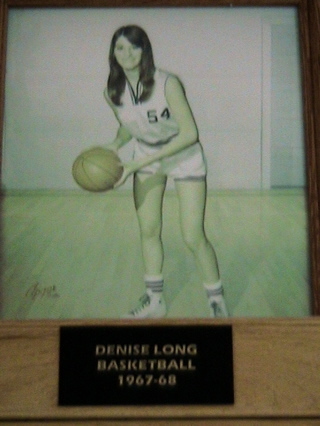The First Female Drafted into the NBA --- II
 This problem is an extension to Arron Kau`s
problem
.
This problem is an extension to Arron Kau`s
problem
.
In 1969, Denise Long became the first female to be drafted into the NBA. In the previous year, she led the Union-Whitten High School basketball team to the state title, averaging an impressive 62.8 points per game. The most points that she scored in a game that season was an astonishing 111. (This feat was only done once.)
Given that there are 30 games in the season of 1968 AND that Denise scored a DIFFERENT number of points in each of the 30 games, what is the smallest possible number of points that she could have scored in her second best game?
Note: She scored a non-negative integer number of points in each game.
The answer is 76.
This section requires Javascript.
You are seeing this because something didn't load right. We suggest you, (a) try
refreshing the page, (b) enabling javascript if it is disabled on your browser and,
finally, (c)
loading the
non-javascript version of this page
. We're sorry about the hassle.
We know that Denise scored 6 2 . 8 × 3 0 = 1 8 8 4 points in total and 1773 points in the other 29 games without the best game. To minimize the score of the second best game, we have to try to maximize the value of the score of the game that she scored the least (Remember that all the scores are distinct). Consider the equation below x + ( x + 1 ) + ( x + 2 ) + ( x + 3 ) + . . . + ( x + 2 8 ) = 1 7 7 3 2 9 x + 4 0 6 = 1 7 7 3 x ≈ 4 7 . 1 3 7 9 3 . . . Obviously x is somewhere between 47 and 48. By pigeonhole principle, we would choose 48 rather than 47 since if x = 4 7 , then the value is 1 7 6 9 < 1 7 7 3 but if x = 4 8 then the value is 1 7 9 8 > 1 7 7 3 . Thus, the minimum value of the second best game is 4 8 + 2 8 = 7 6 .